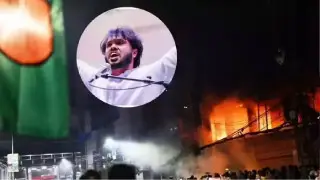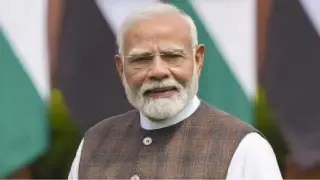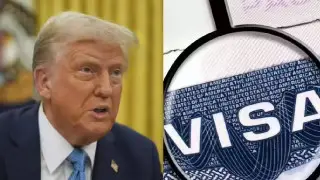
Police have linked the unrest to supporters and associated organisations of the disbanded English Defence League (X/)
Tense rallies led by far-right protesters clashed with British police on Saturday, spreading unrest linked to misinformation about a mass stabbing that claimed the lives of three young girls across the UK. The violent protests, which have resulted in numerous arrests, have put Britain's Muslim community on edge and present a significant challenge for Labour Prime Minister Keir Starmer, just a month into his term.
The unrest has also drawn attention to hard-right agitators connected to football hooliganism, especially at a time when anti-immigration sentiments are gaining traction in British politics. In Liverpool, demonstrators hurled chairs, flares, and bricks at officers, leading to several injuries among police personnel. Similar scuffles between police and protesters erupted in nearby Manchester.
Unfortunate enough to be in Liverpool today. People ramming stores that they believe are owned by minorities. Shouting ‘p*kis get out’ and ‘we want our country back’ #liverpool #Riots pic.twitter.com/bomfpvvfcN
— Maddie Cooke (@madelaineacooke) August 3, 2024
Merseyside Police reported, "A number of officers have been injured as they deal with serious disorder" in Liverpool city centre. In Hull, protesters smashed the windows of a hotel used to house migrants, resulting in injuries to three officers and four arrests. Tensions also flared in Belfast, Northern Ireland, where fireworks were thrown during exchanges between an anti-Islam group and an anti-racism rally.
Clashes between patriots, immigrants and police. This is happening in many British cities. pic.twitter.com/671RAqgMIQ
— RadioGenoa (@RadioGenoa) August 3, 2024
In Leeds, around 150 individuals carrying English flags chanted, "You’re not English any more," while counter-protesters responded with "Nazi scum off our streets." Similar confrontations took place in Nottingham. These skirmishes marked the fourth day of unrest following Monday’s knife attack in Southport, near Liverpool.
BREAKING:
— Megatron (@Megatron_ron) August 3, 2024
🇬🇧 Rioters in Hull, UK are escalating and becoming more violent.
The video allegedly shows a man being pulled out of his vehicle and assaulted or possible stabbed. pic.twitter.com/P8DkSHdA5V
The violence has been fueled by false rumors on social media regarding the background of Axel Rudakubana, a 17-year-old British-born suspect charged with multiple counts of murder and attempted murder. The suspect is accused of killing three young girls and injuring ten others at a Taylor Swift-themed dance party.
Outside a hotel in Redcliffe, Bristol - the hotel is being protected by hundreds of Bristolians shouting ‘We are many, you are few. We are Bristol, who are you?’ to a group of around 100 protesters who had marched on the hotel pic.twitter.com/EbAqHzpzr9
— Tristan Cork Post (@TristanCorkPost) August 3, 2024
Prime Minister Starmer condemned the violence, stating, "Thugs are hijacking the nation’s grief to sow hatred," and pledged that those involved in violent acts would face legal consequences. The initial outbreak of violence in Southport involved a mob attacking a mosque with bricks. This incident led to increased security measures at Muslim places of worship across the country.
Police have linked the unrest to supporters and associated organisations of the disbanded English Defence League, an anti-Islam group with ties to football hooliganism. Subsequent violence spread to Hartlepool, Manchester, and London, where over 100 arrests were made outside Prime Minister Starmer's residence.
On Friday, further riots in Sunderland resulted in ten arrests and four officers requiring hospital treatment. A police station was torched, and a shop looted in the chaos. Northumbria Police Chief Superintendent Mark Hall condemned the actions, describing them as "unforgivable violence and disorder."
Anti-racism campaign group Hope Not Hate identified over 30 events planned for the weekend, many advertised on far-right social media channels. Concurrently, anti-fascism groups staged counter-protests. Despite the tensions, a pro-Palestinian march in London proceeded undeterred by a separate anti-immigration protest.
Government ministers met on Saturday to address the potential for further widespread disorder. Prime Minister Starmer announced measures including intelligence sharing, wider deployment of facial-recognition technology, and criminal behaviour orders to restrict troublemakers' movements. Labour politicians accused Nigel Farage, leader of the anti-immigrant Reform UK party, of exacerbating the situation. Last month's election saw his party capture 14 percent of the vote, marking a significant share for a far-right British party.













Copyright © 2025 Top Indian News
